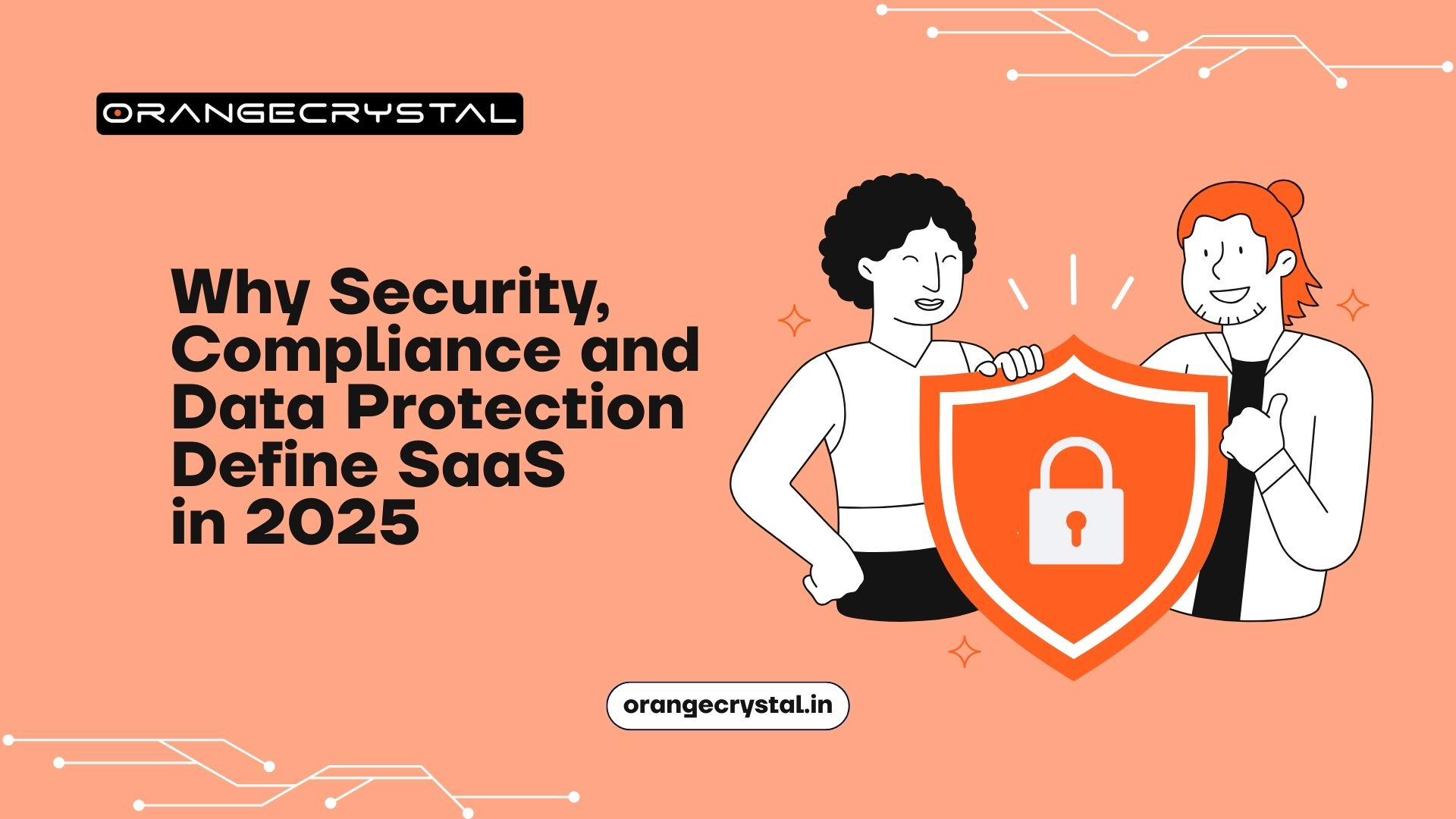Why Security, Compliance and Data Protection Define SaaS in 2025
Software-as-a-Service (SaaS) has matured from a convenient alternative to on-premises applications into the backbone of digital transformation strategies across industries.
Mid to large enterprises now rely on SaaS platforms for mission-critical functions—ranging from ERP and CRM to HR, finance, and supply chain operations. However, as SaaS adoption deepens, the stakes around security, compliance, and data protection have never been higher.
For IT leaders, ensuring SaaS environments are resilient, compliant, and secure is no longer optional. It is a business imperative.
Why Security and Compliance Matter More Than Ever
The Expanding Attack Surface
SaaS applications extend enterprise perimeters into the cloud, creating new vectors for cyberattacks. Unauthorized access, API vulnerabilities, and misconfigured integrations are frequently exploited by threat actors.
With sensitive data now residing in SaaS platforms, even a minor security lapse can result in significant business and reputational damage.
Heightened Regulatory Scrutiny
From GDPR in Europe to India’s DPDP Act, and from HIPAA in healthcare to PCI DSS in financial services, regulatory frameworks governing data protection are expanding rapidly.
Enterprises must ensure their SaaS vendors adhere to global and regional compliance standards or risk penalties, legal exposure, and loss of customer trust.
Mission-Critical Operations
As SaaS becomes the operational core, downtime or breaches are no longer just IT issues—they are enterprise-wide crises. Security incidents can disrupt sales pipelines, delay customer service, impact payroll, or halt supply chain coordination.
Strategic Considerations for IT Leaders
Vendor Risk Management
Not all SaaS providers are equal. IT leaders must evaluate vendors based on their compliance certifications (e.g., ISO 27001, SOC 2), data residency policies, and incident response capabilities. Due diligence in vendor risk assessments is critical before committing to multi-year contracts.
Integration and Interoperability Risks
Modern enterprises rarely rely on a single SaaS application. Integrations across CRM, ERP, HR, and collaboration platforms create complex data flows.
Without proper security measures—such as encrypted APIs, identity federation, and zero-trust policies—these integrations can become weak links in enterprise defenses.
Balancing Security with ROI
Investments in SaaS security are often seen as cost centers. However, the operational and financial impact of a breach far outweighs the upfront cost of robust safeguards.
For example, implementing a cloud access security broker (CASB) or adopting secure access service edge (SASE) frameworks not only mitigates risk but also improves operational visibility and reduces long-term compliance costs.
Best Practices for SaaS Security and Compliance
- Adopt Zero-Trust Principles – Authenticate and authorize every access attempt, regardless of origin.
- Implement Data Encryption End-to-End – Both at rest and in transit, ensuring compliance with regional data sovereignty laws.
- Leverage Identity and Access Management (IAM) – Use role-based access control (RBAC) and single sign-on (SSO) to minimize identity-related risks.
- Conduct Regular Audits and Penetration Testing – Continuous validation ensures security controls remain effective.
- Monitor for Insider Threats – Use behavioral analytics to detect unusual activity before it escalates.
- Ensure Vendor Transparency – Demand clear reporting on incidents, compliance status, and third-party dependencies.
Use Cases and Industry Scenarios
- Financial Services: SaaS platforms managing transaction data must demonstrate PCI DSS compliance and implement advanced fraud detection measures.
- Healthcare: SaaS electronic health record (EHR) solutions must align with HIPAA requirements, ensuring PHI is encrypted and access is tightly controlled.
- Manufacturing & Supply Chain: SaaS-driven logistics platforms need continuous monitoring to protect intellectual property and avoid production delays due to ransomware attacks.
The Road Ahead
As enterprises accelerate their digital transformation journeys, SaaS adoption will continue to grow exponentially. The organizations that succeed will be those that treat security, compliance, and data protection not as afterthoughts but as strategic pillars of SaaS governance.
Conclusion
For IT leaders, the question is no longer whether SaaS can be trusted with mission-critical workloads, but how to ensure it is secured, compliant, and resilient. The risks are too significant, and the opportunities too valuable, to leave to chance.
Our experts at OrangeCrystal specialize in helping enterprises evaluate SaaS vendors, design secure integration architectures, and build compliance-ready operating models.
Contact us today to explore tailored guidance and solutions for safeguarding your SaaS ecosystem.



Leave a Reply